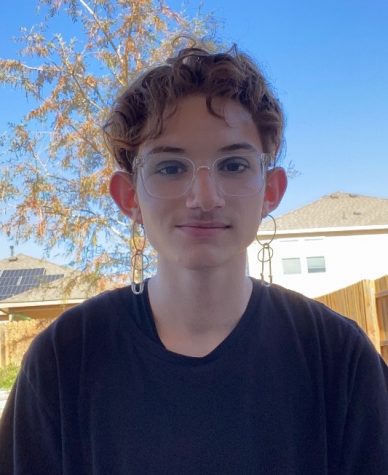‘Dear Evan Hansen’ Movie Fails Fans

The ‘Dear Evan Hansen’ stage production (left), featuring Ben Platt as Evan Hansen and Mike Faist as Connor Murphy, compared to the film adaptation (right), with Platt still starring as Evan, and Colton Ryan as Connor. Graphic by Zack Catuogno.
October 8, 2021
This article contains spoilers for the ‘Dear Evan Hansen’ movie, musical, and book adaptations, in addition to mention of suicide.
Dear Evan Hansen, the six-time Tony award-winning hit Broadway musical, moved from the stage to the screen last week. The movie adaptation of the musical, directed by Stephen Chbosky, stars Ben Platt reprising his role of 17-year-old Evan Hansen, a high school senior with social anxiety. Evan’s desperate desire to fit in with his peers leads him to fabricate his friendship with the deceased Connor Murphy, a student he barely knew, for his own gain. What starts off as a lie made in panic turns into an elaborate charade that involves the entire school, Connor’s parents, and sister Zoe, who Evan just happens to be in love with. Eventually, Evan has everyone convinced that he was the only one who truly knew Connor before he ended his life, building up both a viral and local name for himself.
While the general plot and characters remain the same in the movie adaptation, the movie falls short in the end. Some of the most important songs are completely cut out of the show, including the opening number, (which is replaced by the show’s most popular song, Waving Through a Window) as well as Good For You, a track that delves deeper into Evan’s actions and how they have affected the people in his life. In an attempt to appeal to viewers who have no knowledge of the musical, those who entered theaters in hopes of expanding on their love for the show were let down.
Beyond the cutting of songs, which commonly occurs in movie adaptations in order to speed up the pace of the film, the personalities of characters are warped beyond recognition, at times making it feel like a cheap rip-off of a previously stellar production. In the instance of Connor Murphy, the character who is the backbone for the entire plot of the story and arguably the most crucial character, is stripped of his identifying features and personality. Connor is not meant to be a shallow, edgy teenage boy with clean clothes and short, kept hair. Instead, he’s supposed to be a struggling, depressed, and confused lost kid, with shaggy long hair, dark, wrinkled clothing, and a shy demeanor. Yes, he is angry, but he is not angry for the sake of being angry. He’s angry for being hurt, angry for being confused, and angry for all the ways in which the world has let him down. This is how he’s portrayed in the original musical production, and his internal struggles are expanded on even more in the novel adaptation. (Yes, there is a novel as well.)
The novel adaptation goes far beyond the stage production and gives us a look into Connor’s inner dialogue, and his side of the story. For a plot that focuses on suicide, having a view into Connor’s true thoughts and feelings is essential, as it gives us the necessary backstory to at least partially understand what led to him ending his life. Through the novel, we get to see relationships and friendships of Connor’s that were never presented on the big screen, with the novel revealing Connor’s sexuality and boyfriend.
Yet in the movie, he’s presented as a cliché, edgy teenager who spends too much time on Reddit. With both original source material and a novel expansion, you would think that the movie would be a combination of both or an even further delve into the universe and story. The way that the movie treated Connor is not isolated to just him, with many other characters losing their influential scenes and personalities. What could have been a beautiful film bringing the impactful story of love, loss, and mental health to wider audiences, fails.


